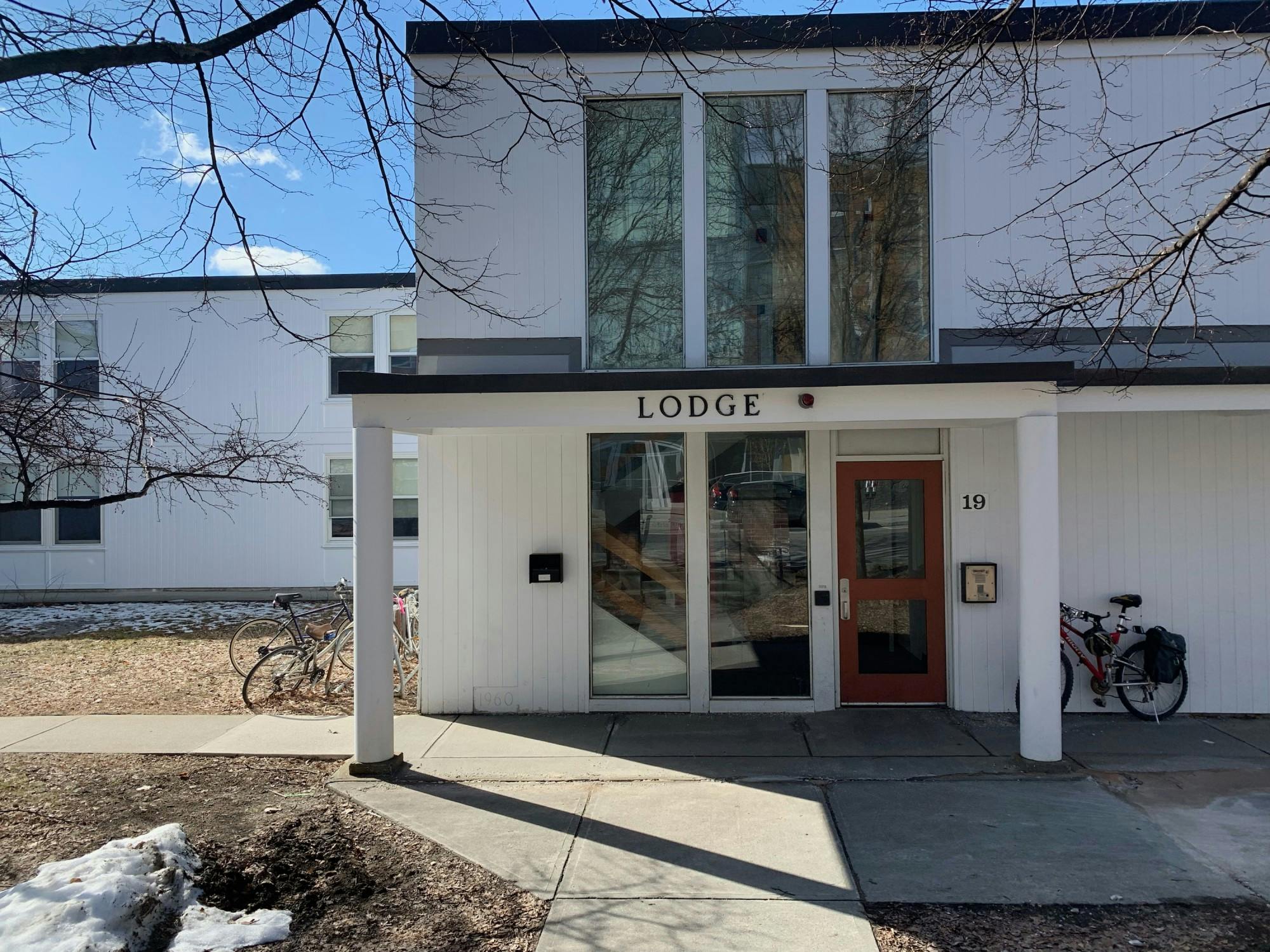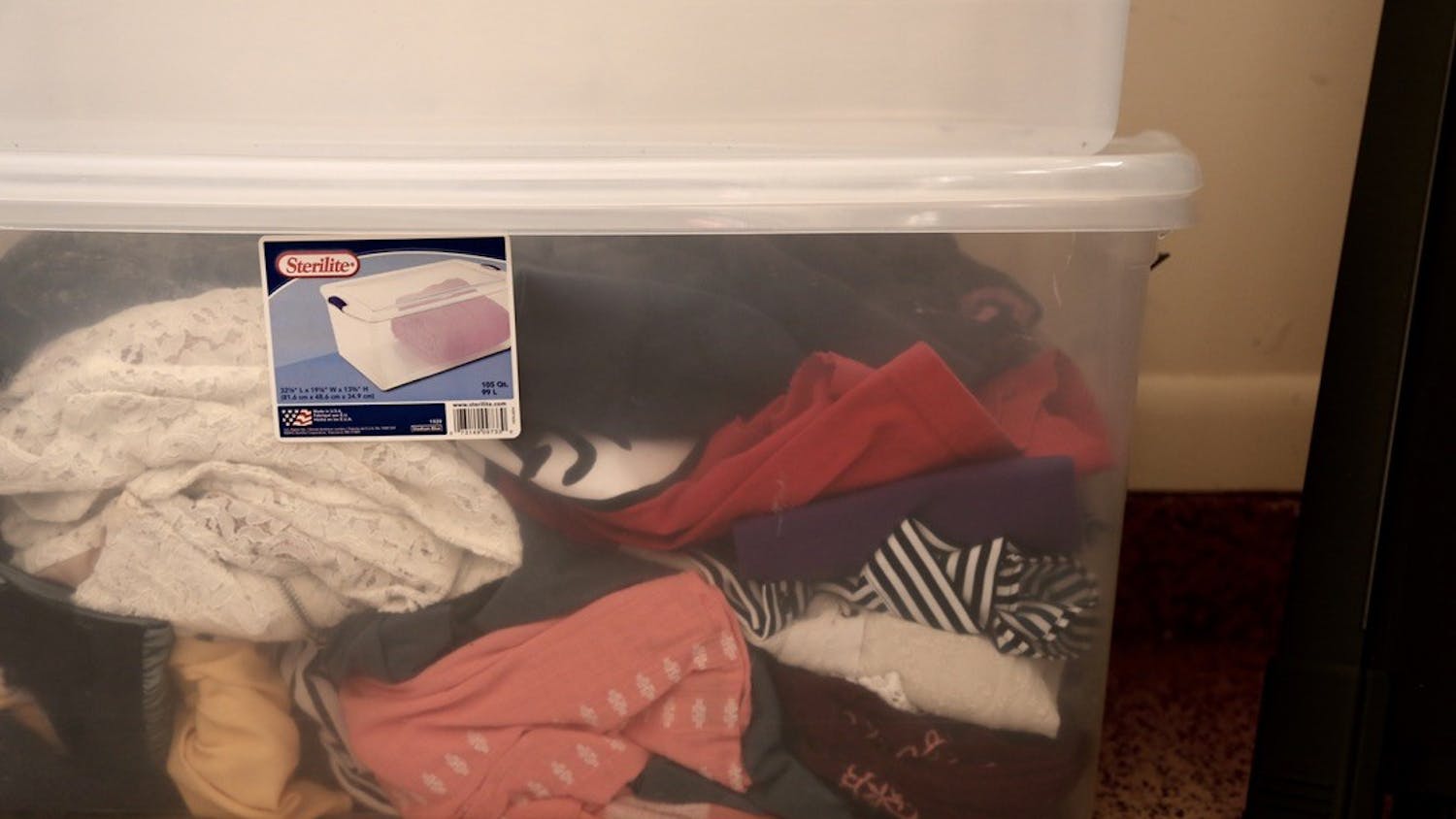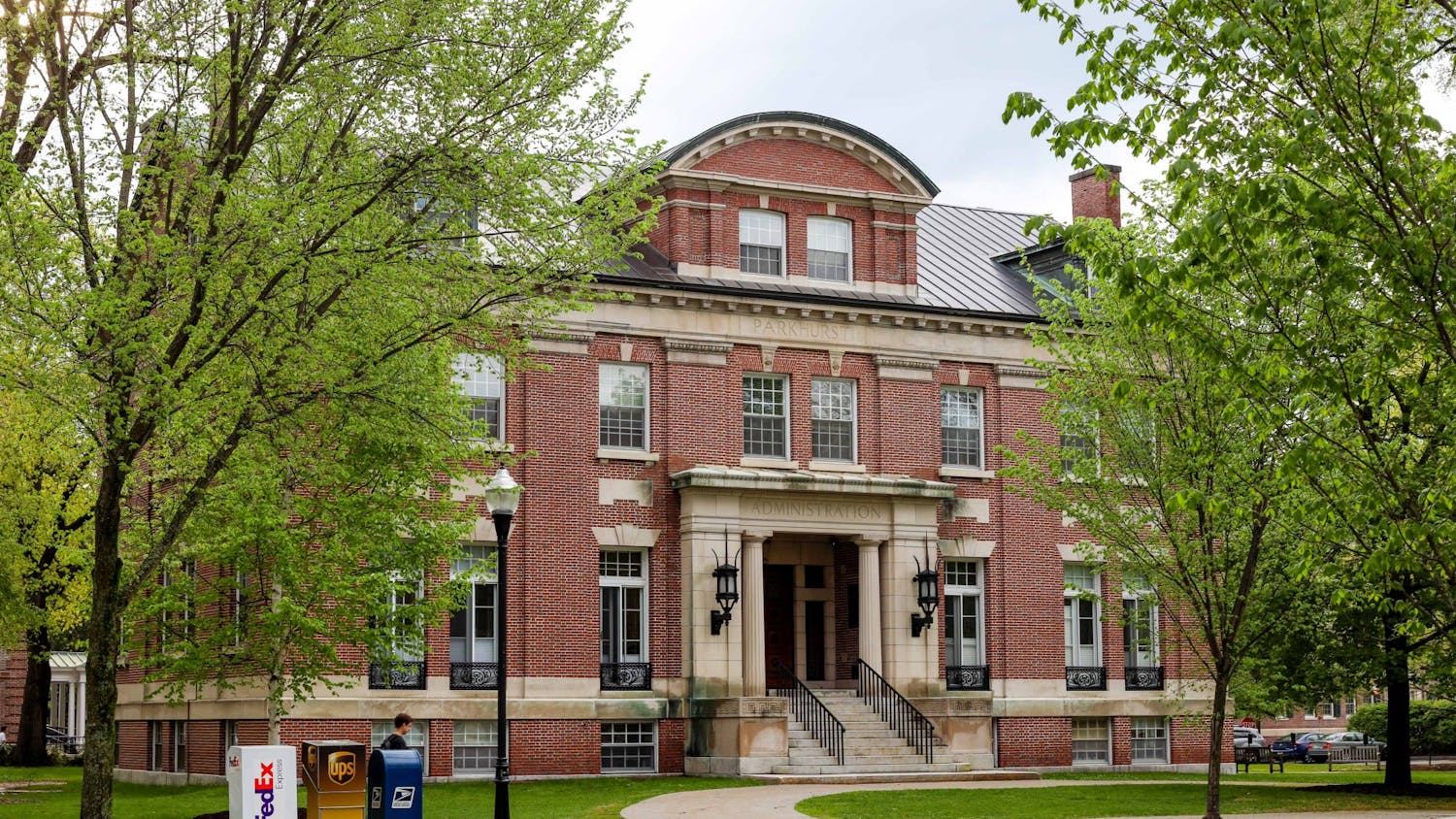Amid a string of residence hall closures, the Lodge has become the most recent dormitory to be cleared out and repurposed as a self-quarantine site for students. Last week, the College moved students’ belongings out of the Maxwell and Channing Cox apartments and 11 Webster Avenue, which houses the Thought Project Living Learning Community.
College spokesperson Diana Lawrence wrote in an email statement that the residence halls have been cleared as a proactive measure in case students who remain on campus may require places to self-quarantine, or if the state should need them in case health care facilities become overburdened. She added that the College does not intend to vacate more dorms at this time.
“The facilities that were emptied were deemed most suitable for self-quarantine or self-isolation as determined by our health care providers,” Lawrence wrote.
Provost Joseph Helble said that residence halls like the Lodge will not be converted into treatment centers and their use will be limited to self-quarantine sites. He said the College was working with local and state officials and with Dartmouth-Hitchcock Medical Center to identify how Dartmouth can support the nearby hospital if it “reaches capacity.”
On Thursday afternoon, Dartmouth COVID-19 task force co-chairs Lisa Adams and Joshua Keniston wrote in an email to campus that the College is considering using its larger indoor athletic facilities to accommodate between 125 to 150 patients in need of low-intensity medical care.
Musab Shakeel ’21, a former Lodge resident and international student who plans to remain on campus for the spring term, said students had heard rumors from his residence hall’s custodian of a change in housing assignments for Lodge residents before the College officially notified students on Monday morning.
“I woke up [on Monday] and got an email from [Dean of the College Kathryn Lively], where we were informed we had to move out of the Lodge by the end of the day,” Shakeel said. “I saw the email around 8:30 a.m. I wasn’t sure what to do. I was packing in a rush, under a lot of unnecessary stress.”
Shakeel said that students in the affected dorms packed up the belongings they “needed immediately” and left the remainder of their possessions to be packed by professional movers hired by the College.
“Even the students who left for their homes and left their stuff expecting to come back, all their stuff is being packed into boxes,” Shakeel said.
In an email to residents of 11 Webster Avenue on March 19, Lively wrote that the College would reimburse students for damaged belongings as a result of the moving process. She also noted that belongings were being placed in storage to be picked up or shipped to students once the “public health crisis abated.”
Meanwhile, some students have voiced concern over the College’s handling of their belongings.
Leah Ryu ’22, a former resident of the Thought Project, said that as a studio art student, she is worried about how the movers have handled her artwork.
“I have drawings and prints I made this term,” she said. “I am worried they threw them in a box. I would like to have determined what should and should not be packed away.”
Lawrence wrote the College was taking “prudent steps” to “secure and protect” student belongings in the affected dorms.
Ryu added that she felt the College’s communication with affected students has often come too late and without opportunity for students to weigh in.
“It feels like we don't have voices or input in this situation,” Ryu said. “If it had to happen, if they had sent some preemptive emails, it could have been worked through.”
Sophia Kriz ’22, another former Thought Project resident, said it would be useful if the College had told people where their belongings will be stored and how they might be able to access them.
She also wondered if the College would punish students for finding prohibited items in their rooms, as the students were not informed that College staff would be entering their residence halls.
Although students are not currently allowed to access the items that they have left behind, Helble said that the College plans to eventually return all belongings to the affected students.
“When and how that will happen is something we cannot answer,” Helble said. “It has to do with travel restrictions and staff shortages, because most staff are now working at home as per federal guidance and as per university direction.”
Helble added that the choice to temporarily prevent students’ return to campus to gather their belongings is not unique to Dartmouth.
“I cannot think of a single peer school encouraging students to return and collect their belongings,” he said.
Dean of the College Kathryn Lively did not respond to requests to comment by press time.




